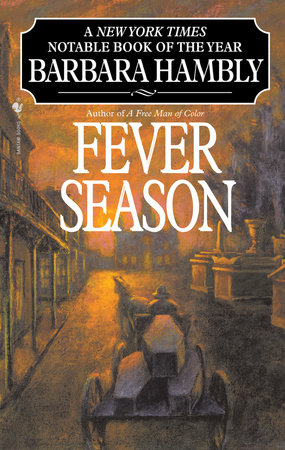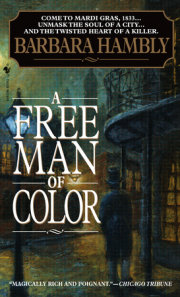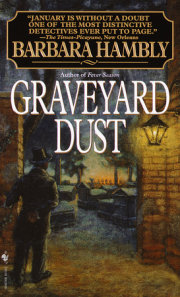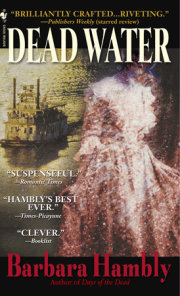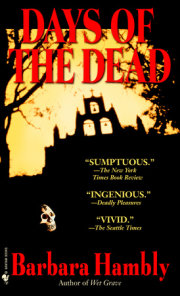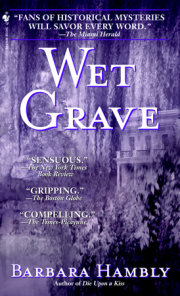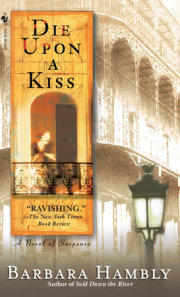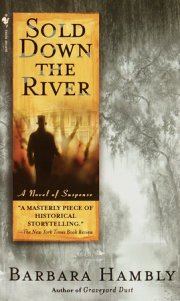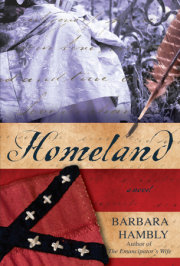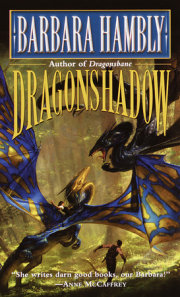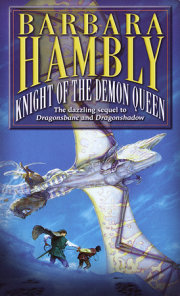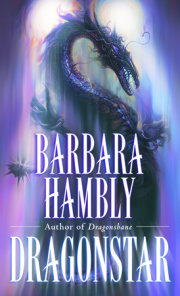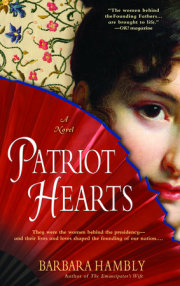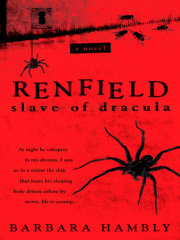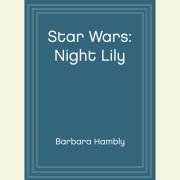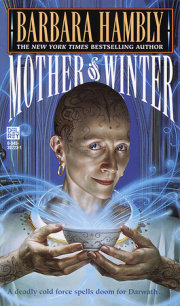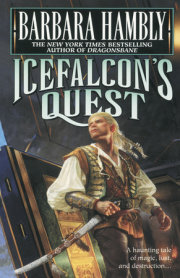In fever season, traffic in the streets was thin. Those who could afford to do so had left New Orleans with the ending of Lent; those who could not had all through the long summer hurried about their business as if Bronze John, as they called the sickness, were a creditor one could avoid if one kept off the streets.
Midday, the molten September heat raised steam from the water in the French town's cypress-lined gutters and the rain puddles in the soupy streets. Mephitic light filtered through clouds of steamboat soot from the levees and gave the town the look of a grimy but inexplicably pastel-walled hell. Only those whose errands were pressing walked the streets then.
So it took no great cleverness on Benjamin January's part to realize that he was being followed.
Charity Hospital, where he'd spent the night and all the morning among the dying, lay on the uptown side of Canal Street, the American side. It was against January's nature to spend more time on that side of town than was absolutely necessary, to say nothing of the fact that Americans seemed to regard all free persons of color as potential slaves, money on the hoof going to waste that could be going into their pockets in the big markets along Baronne and Levee Streets. Americans made no distinction, as the French were careful to do, between African blacks--be they slaves or freedmen--and the free persons of color whose parents had been both colored and white. Not, January reflected wryly, that it made a great deal of difference in his case.
But even in fever season, when men and women, black and white and colored, were only hands to hold off Bronze John from one another--to carry water and vinegar and saline draughts, to fan away the humming swarms of mosquitoes and flies--he felt uneasy uptown.
Maybe that was why he realized so quickly that someone was dogging his steps.
His head ached from twenty-four hours without sleep. His senses felt dulled, as if someone had carefully stuffed his skull with dirty lint soaked in the stinking fluids of the dying; his very bones weighed him down. His last patient that day had been a nine-year-old girl who'd walked the twelve streets to the hospital from the levee where she'd been selling oranges. Her mama, she said in English, before delirium claimed her, would whale her for not staying on to finish the day. The child had died before she could tell anyone who her mama was or where that lady could be found.
As of that morning, no newspaper in the town had yet admitted that there was an epidemic at all.
The fever had first come to New Orleans in January's sixteenth year. In those days you never heard English spoken at all, though the city already belonged to the United States. He'd been studying medicine then with Dr. Gomez and had followed his teacher on his rounds of the hospitals; it seemed to him now, twenty-four years later, that the ache of grief and pity never grew less. Nor did his fear of the fever itself.
He wasn't sure exactly what it was that made him realize he was being stalked.
A glimpse from the corner of his eye as he dodged across Jackson Street among the ambulance wagons, the produce carts, the drays of sugar and indigo on their way to the levee from the inland plantations along the lake. A horse lurched to a stop, tossed its head with an angry snort. A driver cursed in Spanish. Steps away, Freret Street lay deserted under the hot weight of brazen sky, but January knew he wasn't alone. He quickened his stride.
If he walked down Canal Street, among the hip-high weeds, strewn garbage, and dead dogs of what French and Americans alike called the "neutral ground," he would be spared at least some of the stenches of the cemeteries. There seething corpses lined the walls three-deep, like bales on the levee, waiting for tomb space and the men to bear them in. But though he was an accredited member of the Paris College of Surgeons who had practiced at the Hôtel Dieu in that city for six years, January was perfectly well aware that he looked like a field hand: six feet, three inches tall, powerfully built despite the dust of gray that now powdered his short-cropped hair, his skin as glossy black as his African father's had been. That was one reason why it was only in the fever season that he practiced medicine. The rest of the year he played piano to earn his bread. It was an injustice he'd accepted, upon his return to New Orleans from Paris, nearly a year ago.
And things had changed in the city since his departure in 1817.
So he followed Rue Villere downstream, past shabby cottages and grubby shacks in rank jungles of weed, the stench of untended privies, of gutters uncleaned for weeks, and of sties and coops, neglected by their owners, thick as fog around him. An unpaved path, mucky from the morning's rainstorm, led him toward the river.
He was definitely being followed. He didn't want to look back; he couldn't tell by whom.
Rue Douane, the first street of the French town itself, was usually alive with cart and foot traffic. Today, there were only two women in the faded calico of poverty, hurrying with bowed heads. Those, and the dead-carts that lurched toward the cemeteries with their stiffened cargoes wrapped in cheap Osnaburg sheets and their throbbing armies of attendant flies. Like the Americans uptown, the householders here burned piles of hair and hooves from the slaughteryards or smudges made up with gunpowder, to clear the disease-ridden miasma from the air. The smell was foul--charnel house and battlefield rolled into one. The Four Horsemen, January thought, coughing, would bear that smell on their wake when they reaped the plain of Armageddon with their swords.
He cut across Rue Douane midway between two streets, mud sucking his boots. Just before he sprang across the gutter he glanced back. He saw no one.
What do I do? he wondered.
What do I do?
Copyright © 1998 by Barbara Hambly. All rights reserved. No part of this excerpt may be reproduced or reprinted without permission in writing from the publisher.

